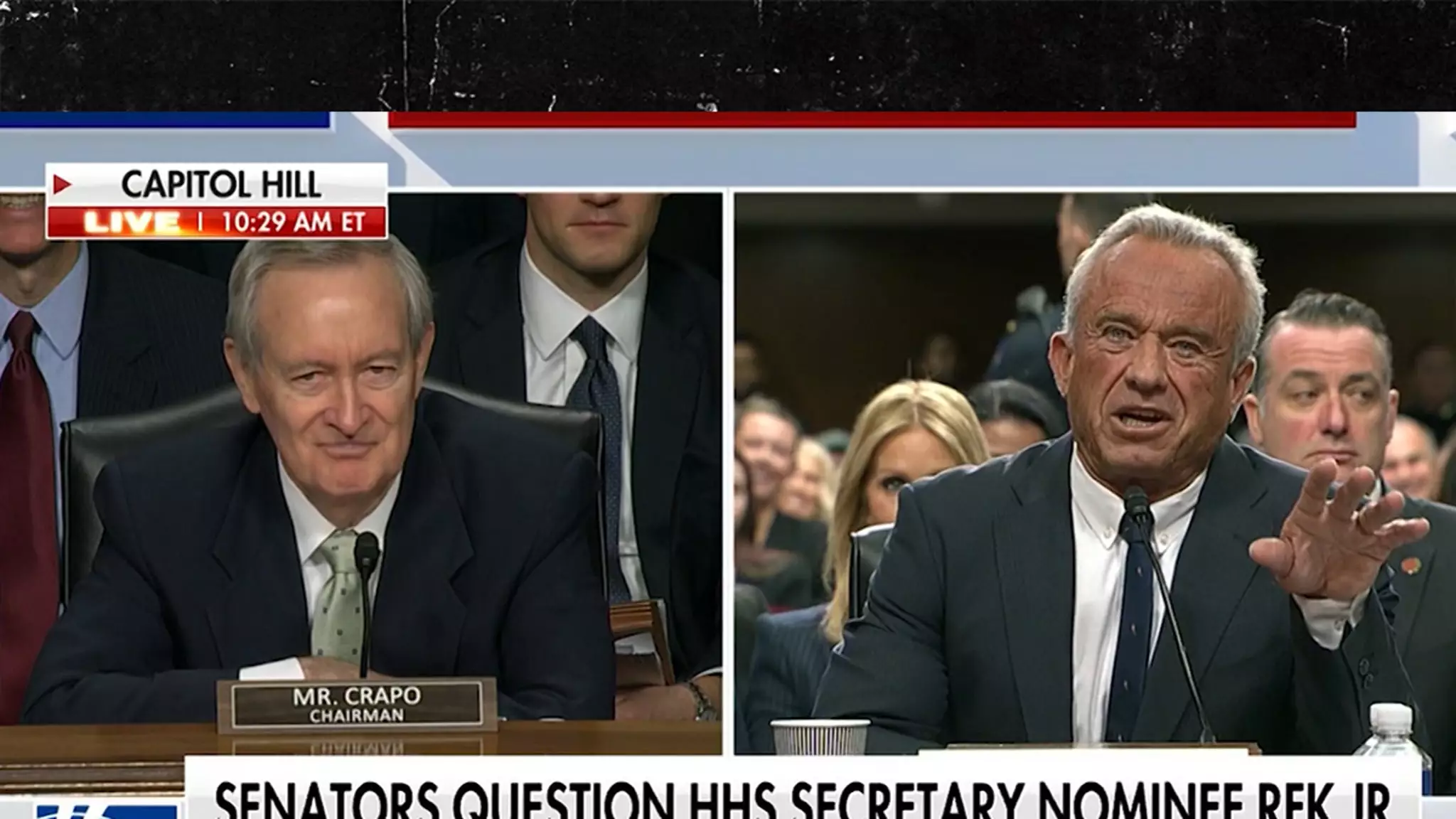The nomination of Robert F. Kennedy Jr. to the position of United States Secretary of Health and Human Services has generated considerable discourse, raising eyebrows across multiple sectors. Kennedy, known for his environmental activism and controversial stances on vaccines, is now eyeing the role that could significantly impact public health policy. His proposal to “Make America Healthy Again” seems paradoxical when viewed against the backdrop of his ties to Donald Trump, whose dietary habits are often criticized for lacking nutritional value. The confirmation hearings reveal a precarious tightrope walk, balancing personal health ethos with political allegiances.
During his confirmation hearing, Kennedy made notable statements regarding America’s fast-food culture, specifically defending the consumption of McDonald’s meals, which left the audience in laughter. Remarks like, “I don’t want to take food away from anybody,” seem to trivialize serious health discussions, hinting at an insufficient grasp of the complexities surrounding nutrition and public health. Although humor may lighten the atmosphere, the implications of such statements pose serious questions about the sincerity and scope of Kennedy’s health initiatives. It raises the concern that to maintain political favor with Trump—who famously took a photograph with a McDonald’s meal onboard Trump Force One—Kennedy may compromise the very values that underpin his health agenda.
Intra-Family Conflict and Public Scrutiny
The nomination process has not only highlighted external adversities but also internal conflicts within Kennedy’s family. Prominent dissent arose from Caroline Kennedy, who vocally criticized her cousin’s qualifications for the pivotal role. Her objections stem from Kennedy’s perceived lack of experience in both medical and governmental fields, hinting at a deeper schism regarding public trust and expertise. This familial disapproval underscores a broader narrative around the importance of having competent leadership driving health policies, especially when dealing with contentious issues like vaccinations, where widespread misinformation has sown distrust among the public.
Kennedy’s views ignite protests, evidenced by interruptions at the confirmation hearing that led to the expulsion of demonstrators. Such reactions showcase the profound Opposition he faces, particularly due to his contentious opinions on vaccines. Although he claims to advocate for safety rather than opposing vaccines outright, these assertions are met with skepticism by both advocates for public health and the medical community at large. The challenge lies in whether Kennedy can effectively bridge the gap between his controversial beliefs and the public’s demand for science-based health policies, a dichotomy that could undermine trust in the Secretary of Health and Human Services.
As the confirmation process unfolds, many wonder what ramifications Kennedy’s appointment could have for public health in America. His ties to a pro-fast food culture and his controversial stance on vaccines lead to a myriad of questions about the future trajectory of health initiatives under his leadership. Will he prioritize public health above political affiliations? Only time will reveal the true impact of his appointment and whether he can earn the trust necessary to navigate the precarious landscape he will surely encounter. The medical community watches closely, grappling with apprehension as they consider the implications of his potential confirmation on the nation’s health policies.

